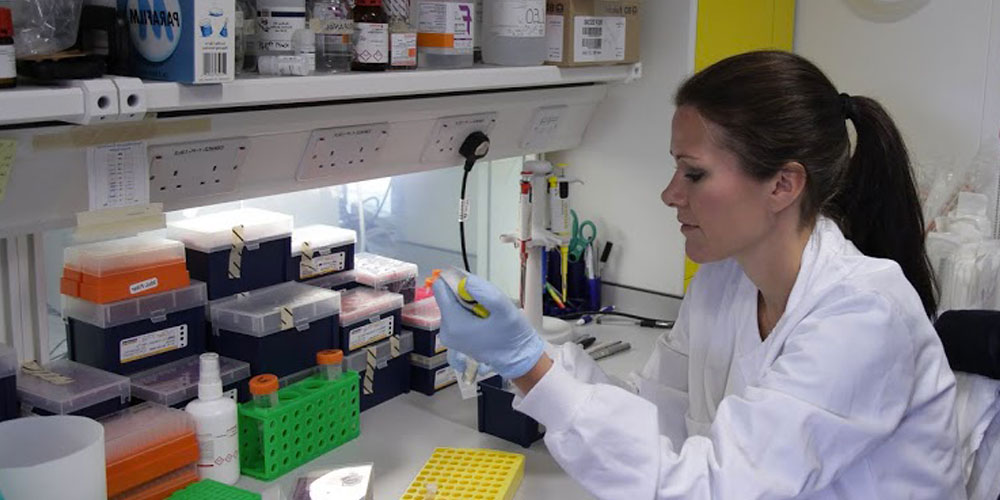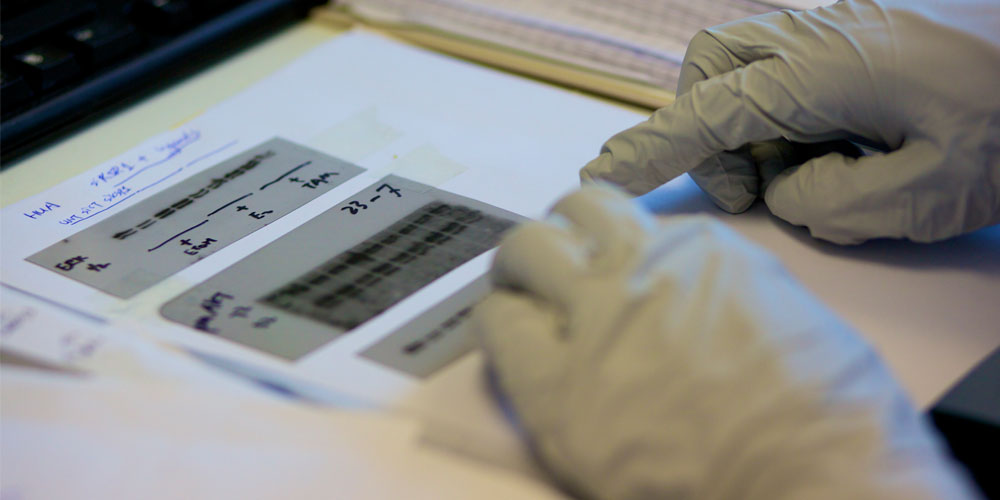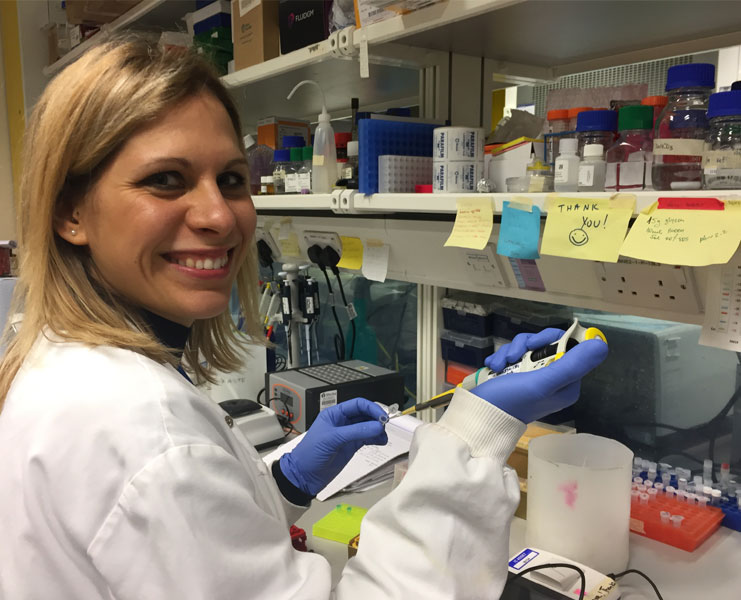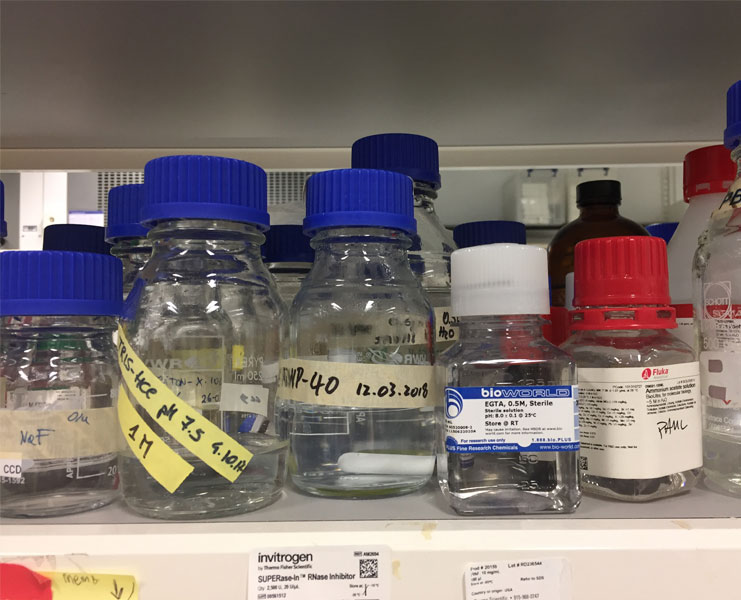Our work
Some 2019 achievements in the labs
Action Against Cancer funds research carried out by various teams of dedicated scientists at Imperial College London and the University of Sussex. Recent highlights of their work include:
Cancer stem cells
Our team have conducted initial experiments with colon cancer cells showing that a specific enzyme controls the protein translation of many important genes that promote cancer, called oncogenes. Strikingly, they have discovered that this enzyme can directly turn these proteins on or off.
These are “outstanding” preliminary results and the scientists believe that inhibiting the effect of this enzyme could have "a potent curative effect". They are now using latest state of the art technology to try and develop a pioneering new way to treat cancer with the enzyme.
Developing a new drug - A totally new approach to therapy
The team working to develop a drug to combat the cancer causing gene LMTK3, have conducted experiments which link the role of the gene in one of the most common and most aggressive types of primary brain tumours, called Glioblastoma multiforme (GBM). They are continuing their research as to the exact mechanism of action and the different molecular pathways that LMTK3 affects GBM. The drug that they are working towards would revolutionise cancer therapy, as it will work with existing treatments, overcoming patient’s resistance that often develops over time.
Metastasis
A considerable challenge in the treatment of metastatic breast cancer is caused by heterogeneity i.e. the many ways in which different cells can vary from each other within a tumour. This can be in size, shape, the ability to grow, move and spread, as well as many other variants. The co-existence of sub-populations of cancer cells within one tumour leads to: treatments not working; a highly unpredictable risk of recurrence; and a negative impact on patient survival. We are funding a new research project to answer questions about the progression of breast cancer and the effectiveness of therapy with reference to heterogeneity.
Genetic switches
Working on pancreatic cancer, our team has discovered that silencing an enzyme resulted in “a huge alteration in the gene profiles expressed”. This is excellent progress towards the aim of revealing changes in gene pathways, to better understand those relevant to the progression of pancreatic cancer, and ultimately to improve diagnostics and treatment options. This is urgently needed as at present only 6% of patients diagnosed with this form of cancer survive for five years or more.
Understanding the cancer brain
The team working to make cancer cells normal again, have analysed 50 enzyme inhibitors to see the effect on brain cancer cells. This generated promising preliminary results, indicating that some of these enzymes could be involved in the process of cell differentiation. The team are now repeating the experiments to validate the findings. The hope is that this breakthrough might lead to new treatment therapies for patients with advanced cancers.
Some previous achievements in the labs:
- From 2024
- From 2023
- From 2022
- From 2021
- From 2020
- From 2019
- From 2018
- From 2017 (part two)
- From 2017 (part one)
- From 2016




